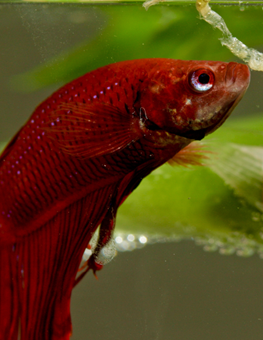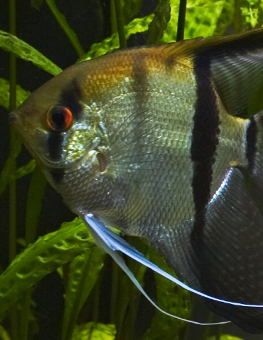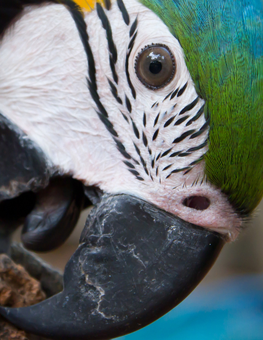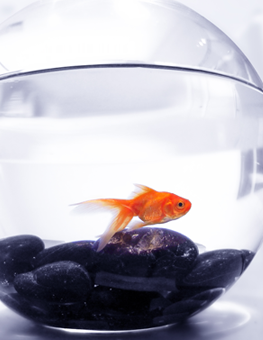How to Keep Your Pond Safe from Predators
Ponds provide a more natural and interesting habitat for fish, but leave them vulnerable to wild animals.
Though your suburban backyard may seem like a safe haven from predatory wild animals, it is in fact a habitat for much more than the fish in your pond. Many animals are willing and capable of making a quick lunch out of your pets. There are a wealth of different predators and a variety of methods for dealing with them.
Know the Enemy
Before dealing with the animals that could be eating your fish, it is important to know what they are.
- Mammals: Along with your neighbor’s cats, other wild mammals like raccoons, foxes, and beavers could be poaching your fish. Keep an eye out for activity from these animals in your backyard.
- Birds: The Blue Heron is perhaps the most ruthless and efficient of the backyard predators. It is especially attracted to brightly colored fish, which are easier to hunt. Other predatory birds include Cranes, Egrets, and Kingfishers.
- Others: Snapping Turtles and Bullfrogs are also capable of taking fish, but unlike the others, are more likely to make at least a semi-permanent residence in your pond. Thus, they should be easier to find and chase away.
Protect Your Fish
Here are some methods to deal with your predator problem:
- Netting: Covering your pond with a fine net is the best way to deal with most predators. Netting denies birds and animals access to your fish and is relatively easy to find in stores and set up. Unfortunately, it can take away from the natural beauty of your pond and is the least pleasing option to the eyes.
- Pond Modifications: There are certain ways to set up your pond to reduce the chance of losing fish to predators. If the water is at least three feet deep, Herons won’t be able to wade and fish can swim deep to avoid poachers. If you are dealing with a raccoon or similar predator, try not to construct any plant ledges or shelves from where they could sit and hunt. If you feel that your pond leaves your fish vulnerable, you could give them artificial shelter such as a large pipe or something similar that gives your fish a place to hide.
- Decoys: Use imitation animals to scare off the real ones that eat your fish. Blue Herons are territorial hunters, and will leave your fish alone if they think another is already hunting them. Other decoys that could scare away predators are fake owls, snakes, and alligators. For the best results, you should try to move around your decoys as much as possible, to keep poachers on their toes. Some of them are very intelligent and will figure out an imitator.
- Alarms: There are a variety of fish poacher alarms on the market, most of them triggered by motion sensors. These contraptions are effective in warding off predators and do so in a variety of ways, from loud music to bright lights to jets of water. Be careful though, because these devices can’t tell the difference between a predator approaching the pond and you. If triggered incidentally, they can be very annoying.
Best Options:
For most predators, netting is the way to go. If you don’t want to spoil the view of your pond, the other methods can be quite effective as well, but nothing can guarantee your fish’s safety. If you know that your predator is not a bird, another option is to install fencing around your pond. Finally, a well-trained and observant dog can help greatly to scare off potential poachers.











